
Artist: Samantha Fish
Latest Album: Kill Or Be Kind
Label: Rounder Records
TrunkSpace: “Kill Or Be Kind” dropped on September 20. As you gear up to release new music into the world – and ultimately relinquish control over it – how do you prepare? Is it easy to let the universe have the art you have created or can it be difficult to say goodbye to it?
Fish: Once I finish an album and it’s out, it’s not really mine anymore. I honestly welcome it. It’s something you work so hard on, it’s nice to let the world receive it. Once it’s out, I can start being creative, and the process begins again. The live show is a good way to adjust things and expand upon the music. If you ever feel restless about how a song turned out, the stage is the place to work it out.
TrunkSpace: This is your sixth solo album. As you look back, is each one a bit like a chapter of your life, and if so, what does “Kill Or Be Kind” say about your current chapter?
Fish: This album signifies change in my life. Saying goodbye but also new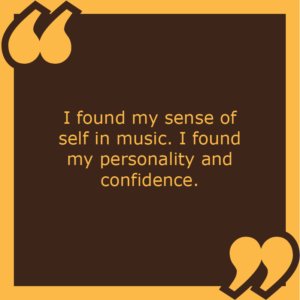 beginnings. I feel that even on some of the more melancholy songs, there is this sense of empowerment and change.
beginnings. I feel that even on some of the more melancholy songs, there is this sense of empowerment and change.
TrunkSpace: No one knows your music better than you do. With that said, where do you hear the biggest differences between the songs present on your debut and where you are today as a songwriter with “Kill Or Be Kind?”
Fish: I feel like I’m more confident today. I’m a little braver. I’m not scared to write about difficult topics, where I think early on, I played it somewhat safe. When you allow yourself to lose the filter, you can become a better artist.
TrunkSpace: If someone unfamiliar with your music sat down and listened to “Kill Or Be Kind” front to back, what would they learn about you as an artist and person?
Fish: What a loaded question! I’m not sure. Maybe that I have a terrible love life. (Laughter) That’s the cool thing about being a songwriter, you live in it, but you also get to be a story teller. I do sing from my heart, so all I care about is that they feel it. Back to the first question, once it’s out in the world, it ceases to be about me. It’s about the listener and what it means to them.
TrunkSpace: What are you most proud of with the album?
Fish: That I am the sole guitarist on the album! Believe it or not, that’s never happened. By design, I wanted the opportunity to showcase that. I’m proud of the production, I feel like there is a lot of nuance and subtle instrumentation that makes these songs stick in your head.
TrunkSpace: What would 12-year-old Samantha think of your musical journey thus far? Would she be surprised by the path you have taken?
Fish: Twelve-year-old Samantha was going to be a vet, movie star and an astronaut all before 30. Honestly, I’d probably be surprised. I was a really shy kid. The idea of performing in front of crowds would have scared the hell out of me. I found my sense of self in music. I found my personality and confidence.
TrunkSpace: We love great lyrics… the kind that stick with us well after the song comes to end. What’s a favorite lyric of yours that you have written and why?
Fish: I really like the lyrics in “Dream Girl” right now. I wrote this song with Jim McCormick. The hook is:
If I could give up, a happy ever after, I’d be gone. If you could live up, to the dreams that I’ve been having, I’d hold on.
It’s melancholy, but weirdly hopeful. I love juxtaposition in art, it’s so prevalent in all life and matters of the heart. We’re all constantly at some type of crossroads, and that lyric touches on that.
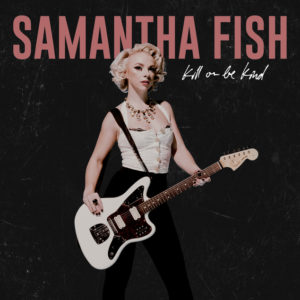 TrunkSpace: Where are you hardest on yourself as an artist, and, have you gotten less self-critical over your work as you have gotten deeper into your career?
TrunkSpace: Where are you hardest on yourself as an artist, and, have you gotten less self-critical over your work as you have gotten deeper into your career?
Fish: I think the first time you hear your voice on tape, it’s jarring. I’ve worked really hard on my singing over the years. If you don’t like something, you can change it. I’ve become less frustrated because I can do more now, but I’m still pretty critical of my performances. I strive for the best, so if I feel like I could or should have done better, I work at it.
TrunkSpace: How long did it take you to discover your voice as a songwriter, and do you think that creative point of view is constantly evolving?
Fish: Absolutely. It’s always evolving and changing. Life changes you naturally, so your perspective will change and become more mature. I started writing at 19, and thank God I don’t still think the same way I did back then.
TrunkSpace: Time machine question. If you could jump ahead 10 years and get a glimpse of what your career looks like a decade from now, would you take that journey? If not, why?
Fish: I’d love to say, hell yes, who wouldn’t? I really like knowing where I’m going. But what if you weren’t there in the future? That would really freak me out.
“Kill Or Be Kind” is available now on Rounder Records.



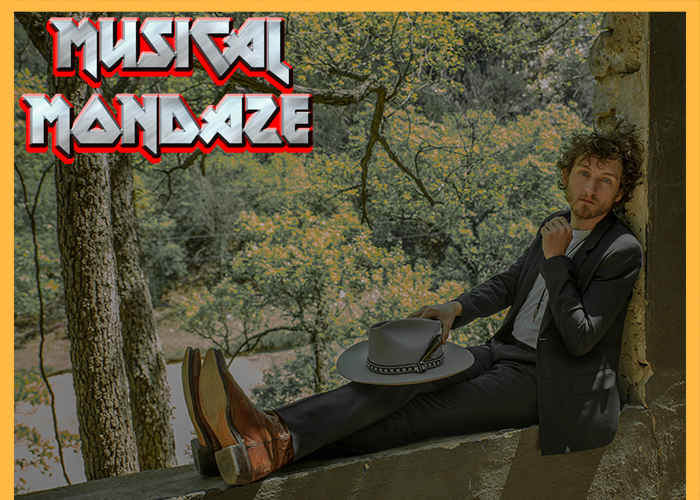
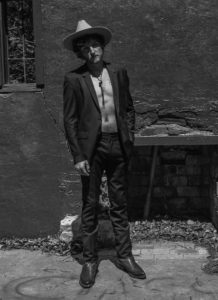
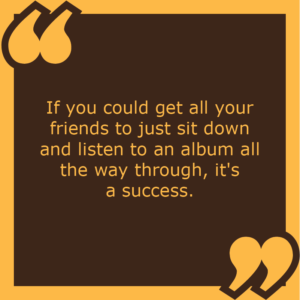
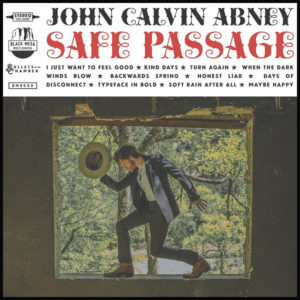 It’s a journey, man. If you could get all your friends to just sit down and listen to an album all the way through, it’s a success. If you can get a group of people to sit down, and have a beverage or without talking, or you’re just being able to comment on any record. “Blood On The Tracks” is one of my favorite records of all time, and I can listen to that record front to back every single day on my life, because it really is front to back. It encapsulates that part of Dylan’s life. All the classics. “Harvest” by Neil Young. I mean, that is front to back! You’re like, “Fuck, man!” Those are all records that you really can just get through. I really especially like that new The War on Drugs record, “Deeper Understanding.” That record… Oh my God! It’s like you get all the good feelings of Dylan and all of the while, beautiful sounds and crazy explorative stuff, but at the core of it all, it’s this emotion that carries through that entire record, and you can listen to it front to back, and by the end of it, it’s one single unit. It could be 30 songs, but it’s one single thing.
It’s a journey, man. If you could get all your friends to just sit down and listen to an album all the way through, it’s a success. If you can get a group of people to sit down, and have a beverage or without talking, or you’re just being able to comment on any record. “Blood On The Tracks” is one of my favorite records of all time, and I can listen to that record front to back every single day on my life, because it really is front to back. It encapsulates that part of Dylan’s life. All the classics. “Harvest” by Neil Young. I mean, that is front to back! You’re like, “Fuck, man!” Those are all records that you really can just get through. I really especially like that new The War on Drugs record, “Deeper Understanding.” That record… Oh my God! It’s like you get all the good feelings of Dylan and all of the while, beautiful sounds and crazy explorative stuff, but at the core of it all, it’s this emotion that carries through that entire record, and you can listen to it front to back, and by the end of it, it’s one single unit. It could be 30 songs, but it’s one single thing.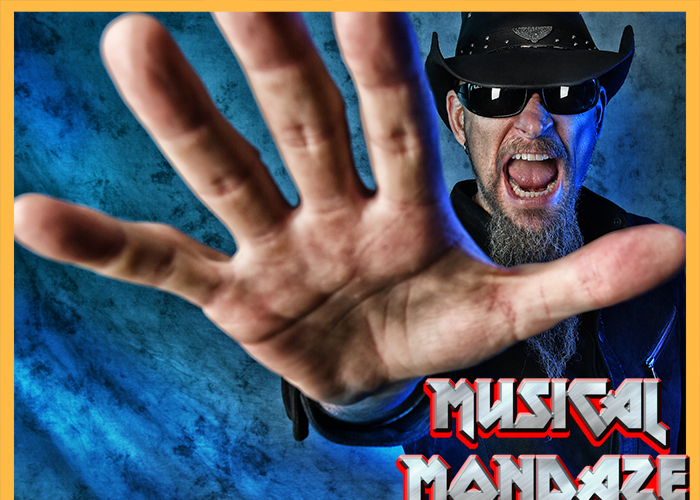
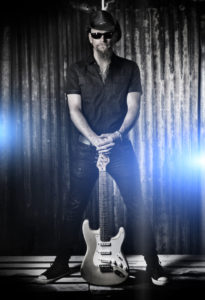 A
A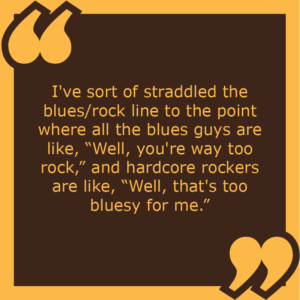 there would be two or three bands
there would be two or three bands 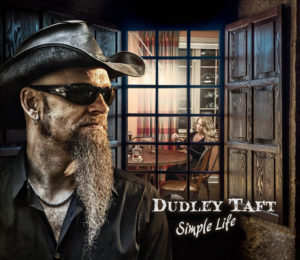 TrunkSpace
TrunkSpace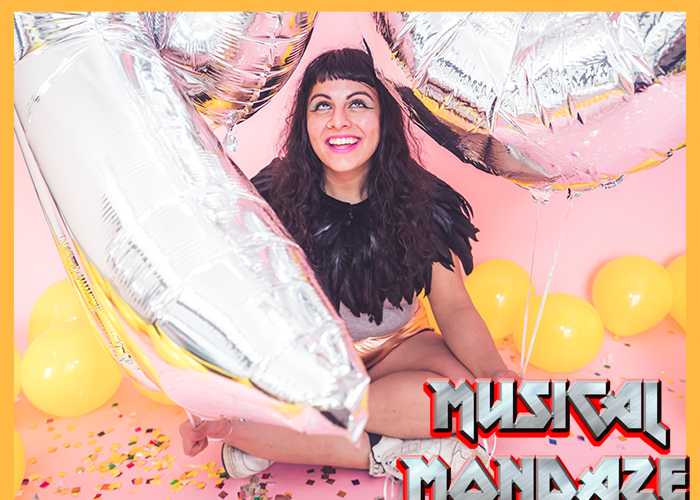

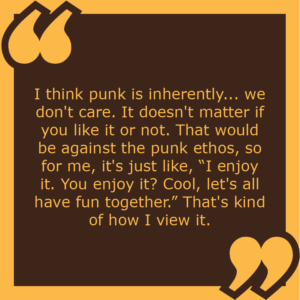
 I hear from artists, on the vulnerable side, be like, “Oh my God, why isn’t it doing well? Why isn’t anyone liking it? Oh my God.” And I kind of get that, in a sense, because once you hit something, you’re like, “Oh, why am I not number one all the time forever?” Because that’s the ridiculous thing for artists to think, but I totally get where they’re coming from because it’s vulnerable. You made this thing. This is your art. This is you putting out your real self, theoretically, or at least your real fun self, or whatever your alter ego is. So I get that. But it does take some pressure off that I’m happy with it because I think that if you’re not happy with it, then, of course, it makes it harder if you’re doubting yourself about your music, and you’re not sure if it’s good, and you care about what other people think. I think punk is inherently… we don’t care. It doesn’t matter if you like it or not. That would be against the punk ethos, so for me, it’s just like, “I enjoy it. You enjoy it? Cool, let’s all have fun together.” That’s kind of how I view it.
I hear from artists, on the vulnerable side, be like, “Oh my God, why isn’t it doing well? Why isn’t anyone liking it? Oh my God.” And I kind of get that, in a sense, because once you hit something, you’re like, “Oh, why am I not number one all the time forever?” Because that’s the ridiculous thing for artists to think, but I totally get where they’re coming from because it’s vulnerable. You made this thing. This is your art. This is you putting out your real self, theoretically, or at least your real fun self, or whatever your alter ego is. So I get that. But it does take some pressure off that I’m happy with it because I think that if you’re not happy with it, then, of course, it makes it harder if you’re doubting yourself about your music, and you’re not sure if it’s good, and you care about what other people think. I think punk is inherently… we don’t care. It doesn’t matter if you like it or not. That would be against the punk ethos, so for me, it’s just like, “I enjoy it. You enjoy it? Cool, let’s all have fun together.” That’s kind of how I view it.
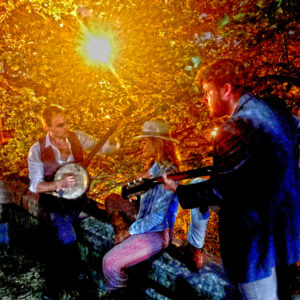 TrunkSpace Exclusive Premiere
TrunkSpace Exclusive Premiere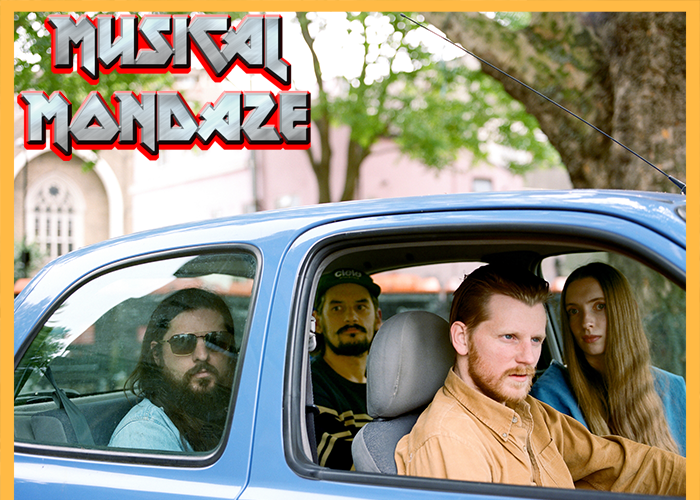
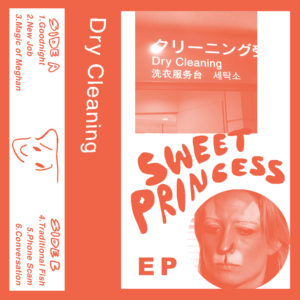
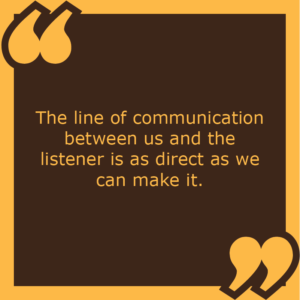
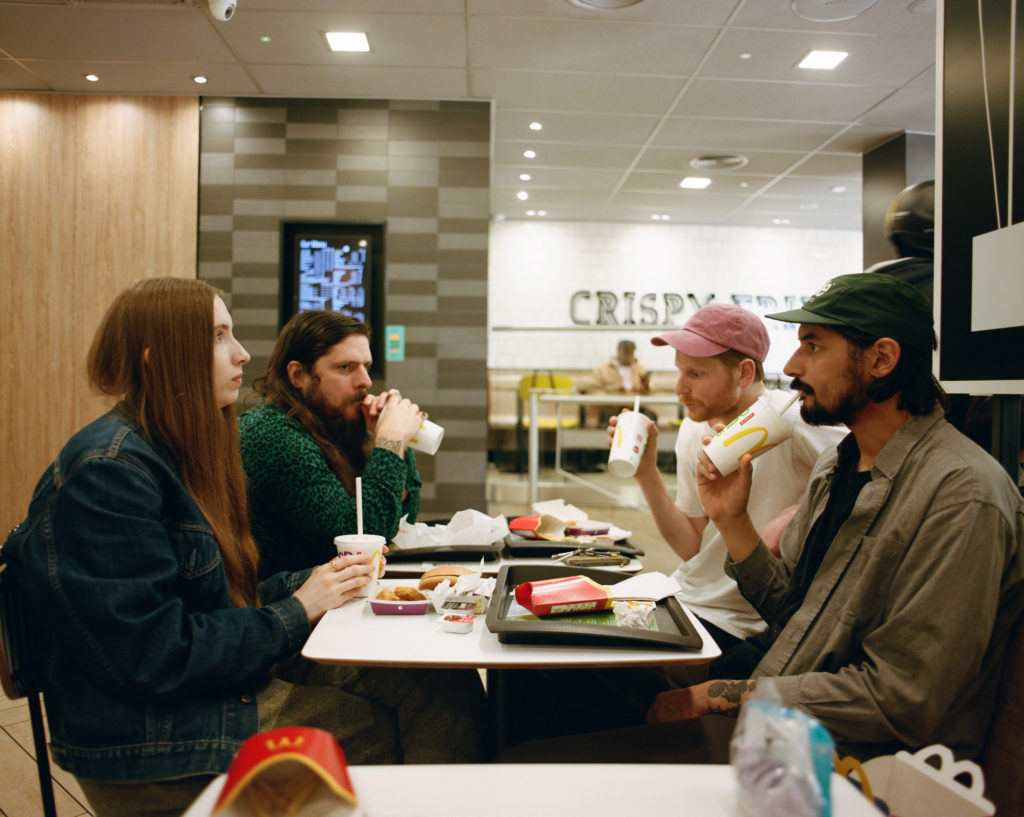
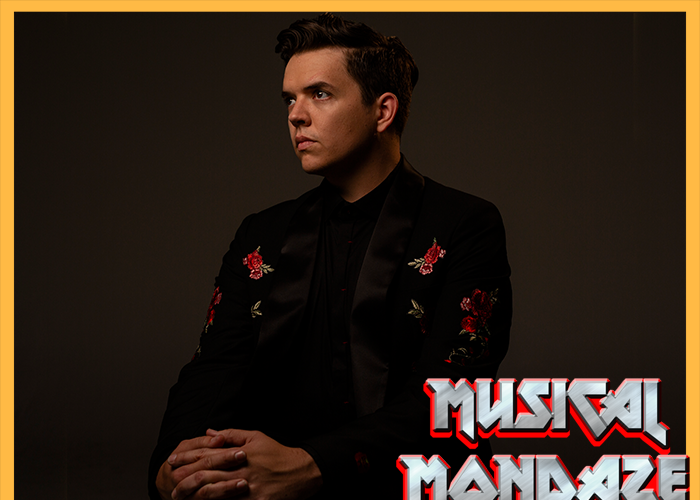

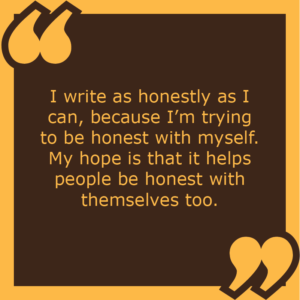
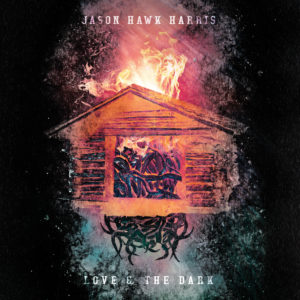 It’s coming in waves, it’s numb in between
It’s coming in waves, it’s numb in between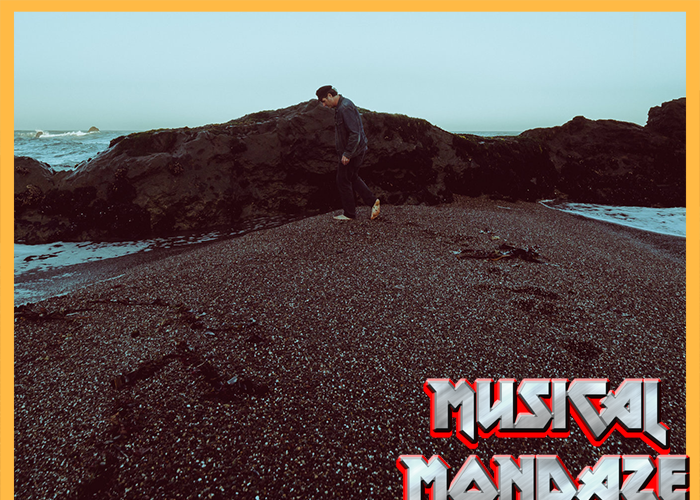
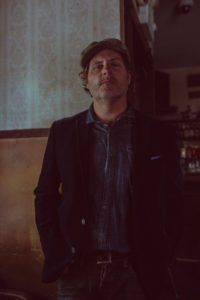
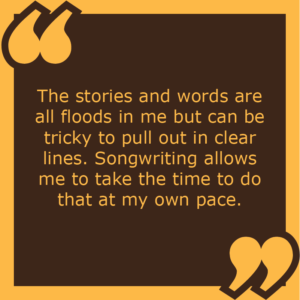 the giant set of organized and interlocking tasks which is independently releasing a record in 2019 is way more complicated than writing a baker’s dozen songs. Maybe the Dutch or the German have a word for “fear of unsold units” or its cousin, “dusty boxes of merch in the shed.” Or maybe this millennium’s compound word would have something to do with the professional (rather than the social) fear of not getting enough likes to be competitive in your market. That whole part is pretty awful.
the giant set of organized and interlocking tasks which is independently releasing a record in 2019 is way more complicated than writing a baker’s dozen songs. Maybe the Dutch or the German have a word for “fear of unsold units” or its cousin, “dusty boxes of merch in the shed.” Or maybe this millennium’s compound word would have something to do with the professional (rather than the social) fear of not getting enough likes to be competitive in your market. That whole part is pretty awful.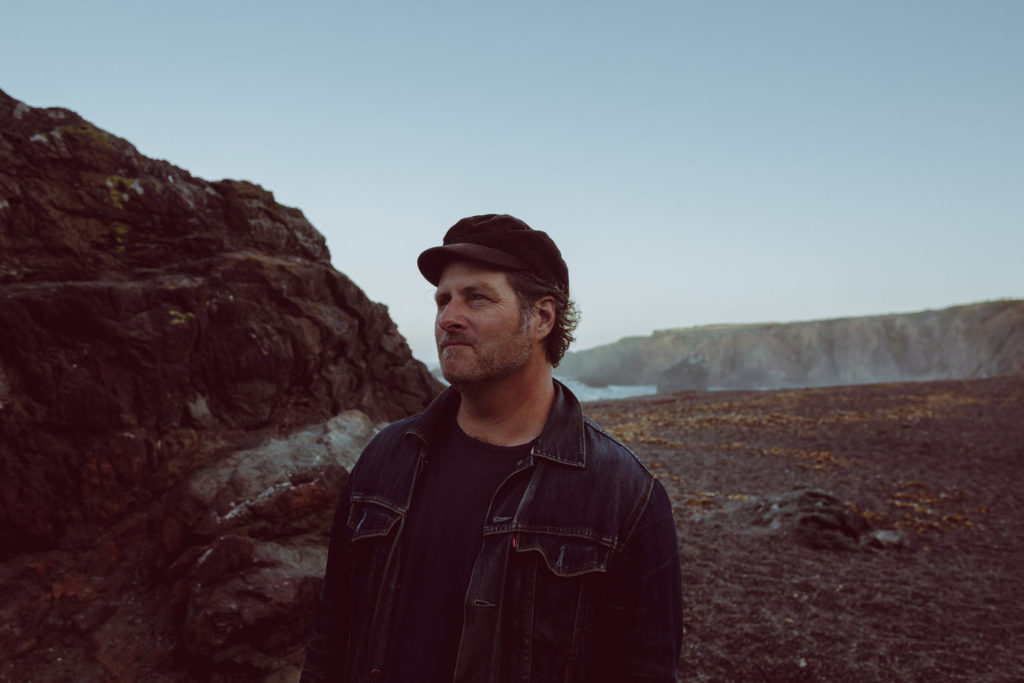
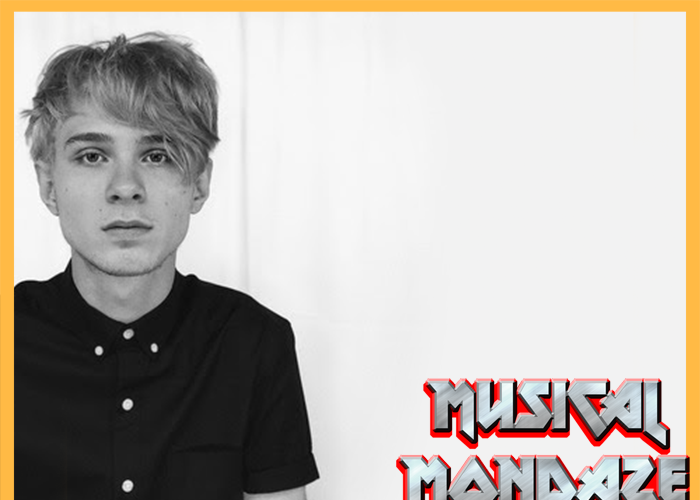

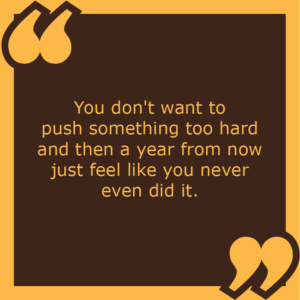 on the record.
on the record.  TrunkSpace
TrunkSpace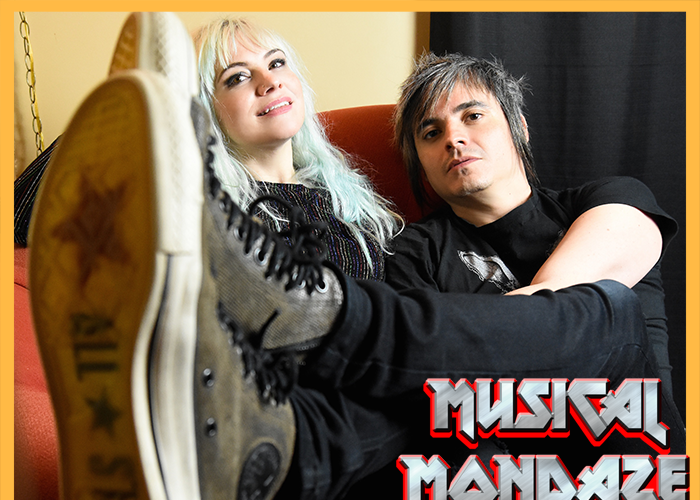

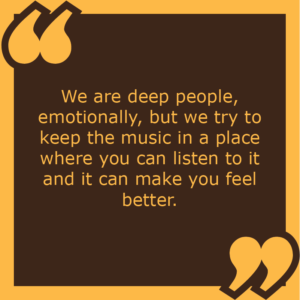 doing
doing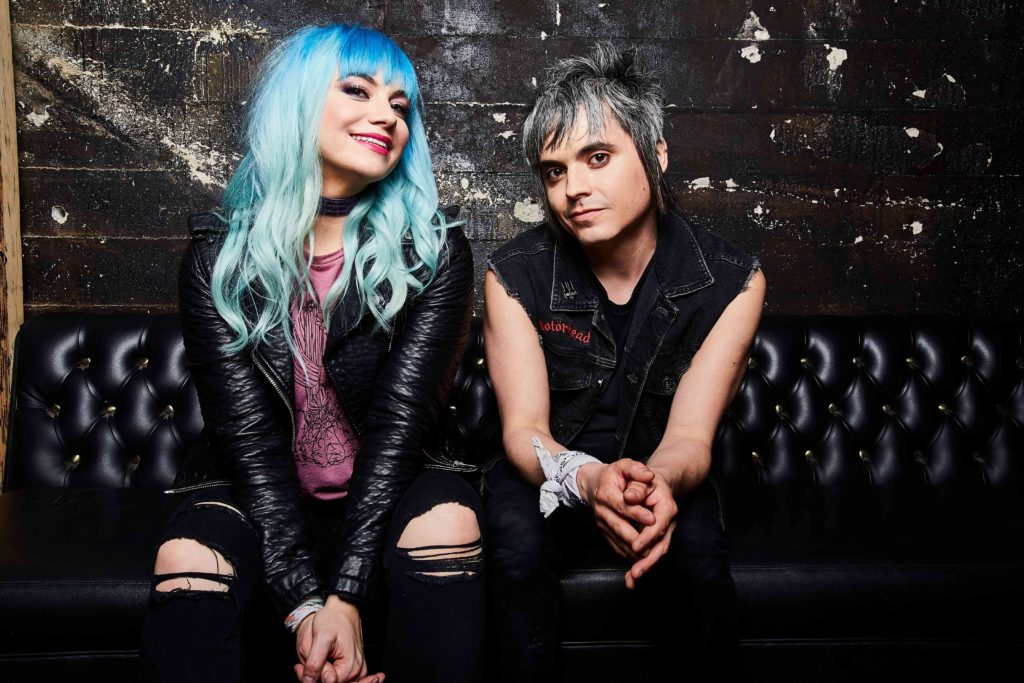
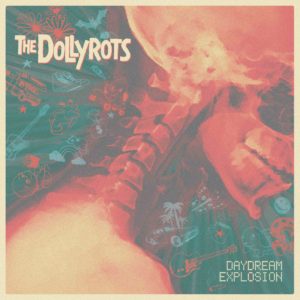 TrunkSpace
TrunkSpace